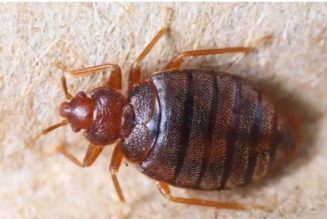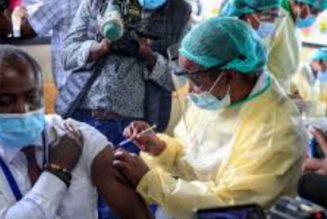
The original article was published by the Multistate Research Fund Impacts and is reprinted here with permission.
Researchers and educators at Land-grant Universities across the country are working together to assess the healthfulness of college campuses, develop tailored health promotion programs, and disseminate information that helps campus leaders, policymakers and others make decisions that support healthier environments and healthier habits for young adults.
Supporting healthy behaviors in young adults can have long-lasting effects on physical and mental wellness. Reducing the risk of chronic diseases like obesity, heart disease, hypertension and Type 2 diabetes can lessen the burden on the healthcare system.
After creating assessment tools to better understand the unique needs of young adults, the team developed interventions that teach and encourage healthy behaviors and tools to make environments healthier. The team trained researchers, educators, college administrators and paraprofessionals to use these tools. These tools have been used to assess the health behaviors of more than 16,000 college students and 5,000 high school students in recent years.
- Web Health provided a 10-week online nutrition and physical activity program. This non-dieting program led to lasting increased intake of fruits and vegetables. Participants also maintained levels of physical activity.
- Project YEAH led to significant increases in fruit and vegetable intake, minutes of vigorous physical activity in women, and hours of sleep. Participants also reduced their percentage of energy (calories) from fat.
- The team developed the Healthy Campus Environmental Audit, which measures: food access and availability in vending machines, convenience stores, dining halls and restaurants; walkability; bike-ability; recreation facilities and programs; and health-related policies. About 75 communities have used the audit to measure, monitor and advocate for environmental changes that make healthy habits easier and more sustainable for more young adults.
- To assess individuals’ views of their environment, the team developed the Behavior Environment Perception Survey. The team surveyed over 2,000 college students from 10 universities. Results indicated that college students would like better support for mental health and healthy eating options on campus but are mostly satisfied with physical activity resources. Seeing how perceptions compare to reality can help identify which environmental changes to target so that resources are used efficiently and impactfully.
- Ninety college campuses and 22 high schools used the Get FRUVED toolkit to identify campus needs and create a targeted local campaign to promote healthy behaviors, environments, and policies. Get FRUVED led to increased fruit and vegetable intake as well as decreased waist circumference, systolic blood pressure, blood cholesterol and body mass index among participants. These kinds of reductions during young adulthood can significantly reduce the likelihood of chronic disease development over a lifetime. Participating campuses received a personalized narrative describing the local impacts so they can easily share success stories with stakeholders.
Through focus groups and interviews with paraprofessionals and stakeholders, researchers determined that these tools need to be reconceptualized for low-income communities.
Team Excellence
This project has involved collaborations among more than 40 researchers and over 1,000 students and resulted in more than 50 collaborative publications and presentations. In the last five years, team members have leveraged $20.8 million to support project objectives. In 2020, the team received the Excellence in Multistate Research Award for the North Central Region. Individuals have been recognized for their advising, teaching, research, service, programming, professorship, and diversity. Members have also received awards from national professional organizations and journals. In addition, team members have trained hundreds of undergraduate and graduate students in research, leadership, mentoring, and health promotion. These transferable skills strengthen student resumes and job applications.
NC1193: Using Behavioral and Environmental Tools to Identify Weight Related Factors Associated with Health in Communities of Young Adults is supported in part by the Hatch Multistate Research Fund administered by USDA-NIFA and by grants to participating institutions: Auburn University, University of Florida, Kansas State University, University of Kentucky, University of Maine, Mississippi State University, University of Nebraska Lincoln, University of New Hampshire, University of Rhode Island, Rutgers University, South Dakota State University, Syracuse University, University of Tennessee, West Virginia University. In 2021, NC1193 funding was renewed through 2026. Learn more: bit.ly/MRF-NC1193
This impact statement was produced by the Multistate Research Fund Impacts Program, January 2023.









